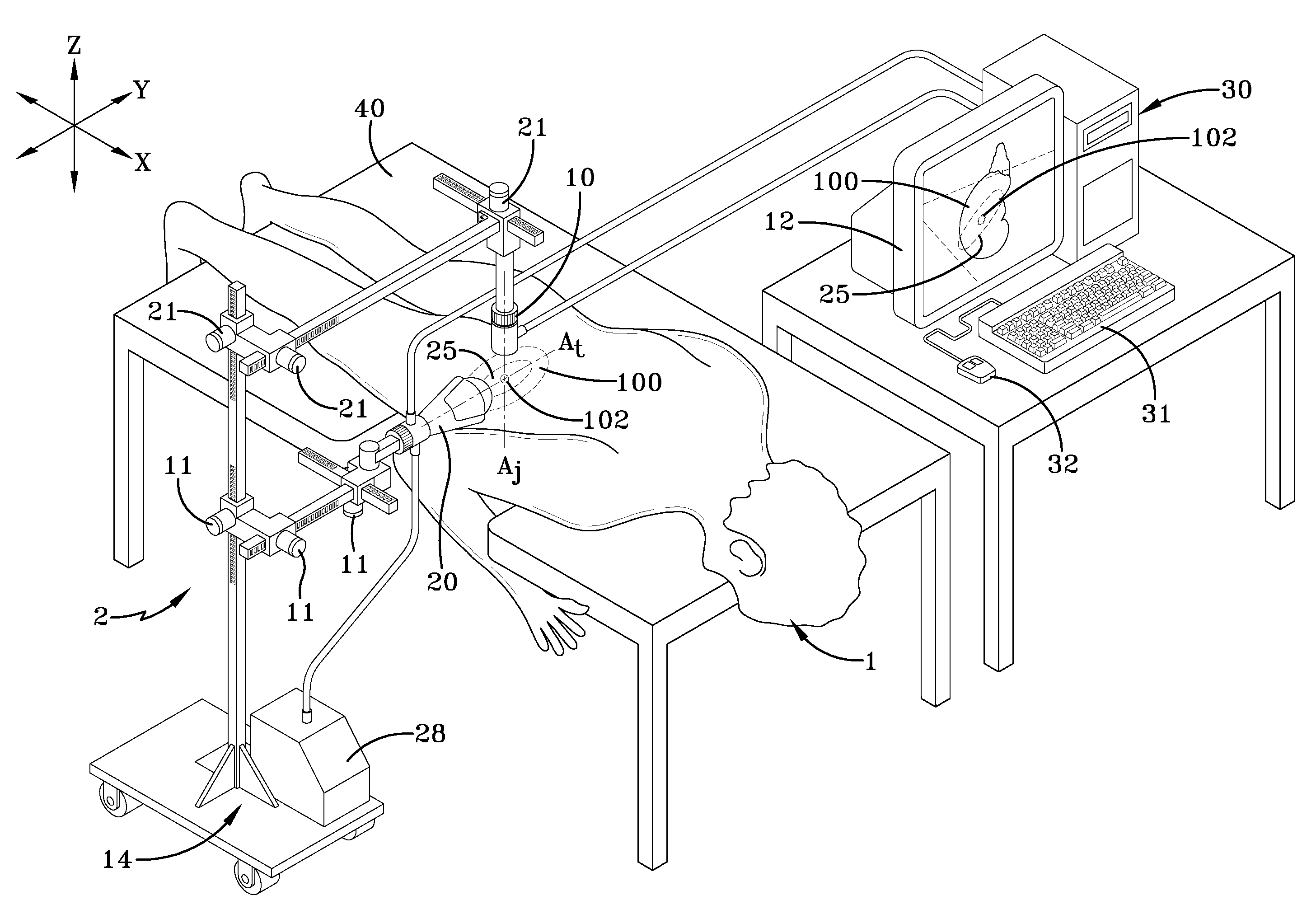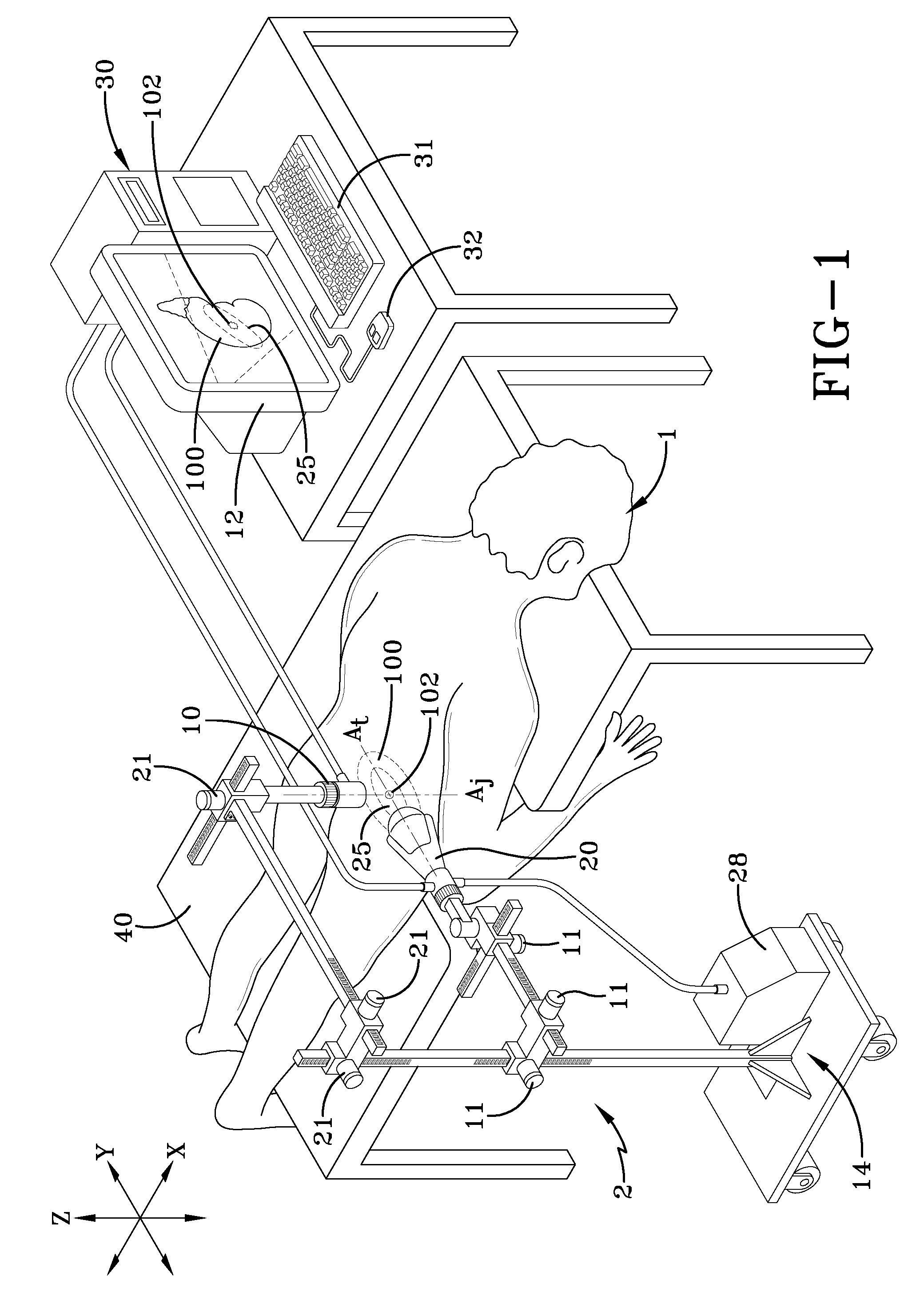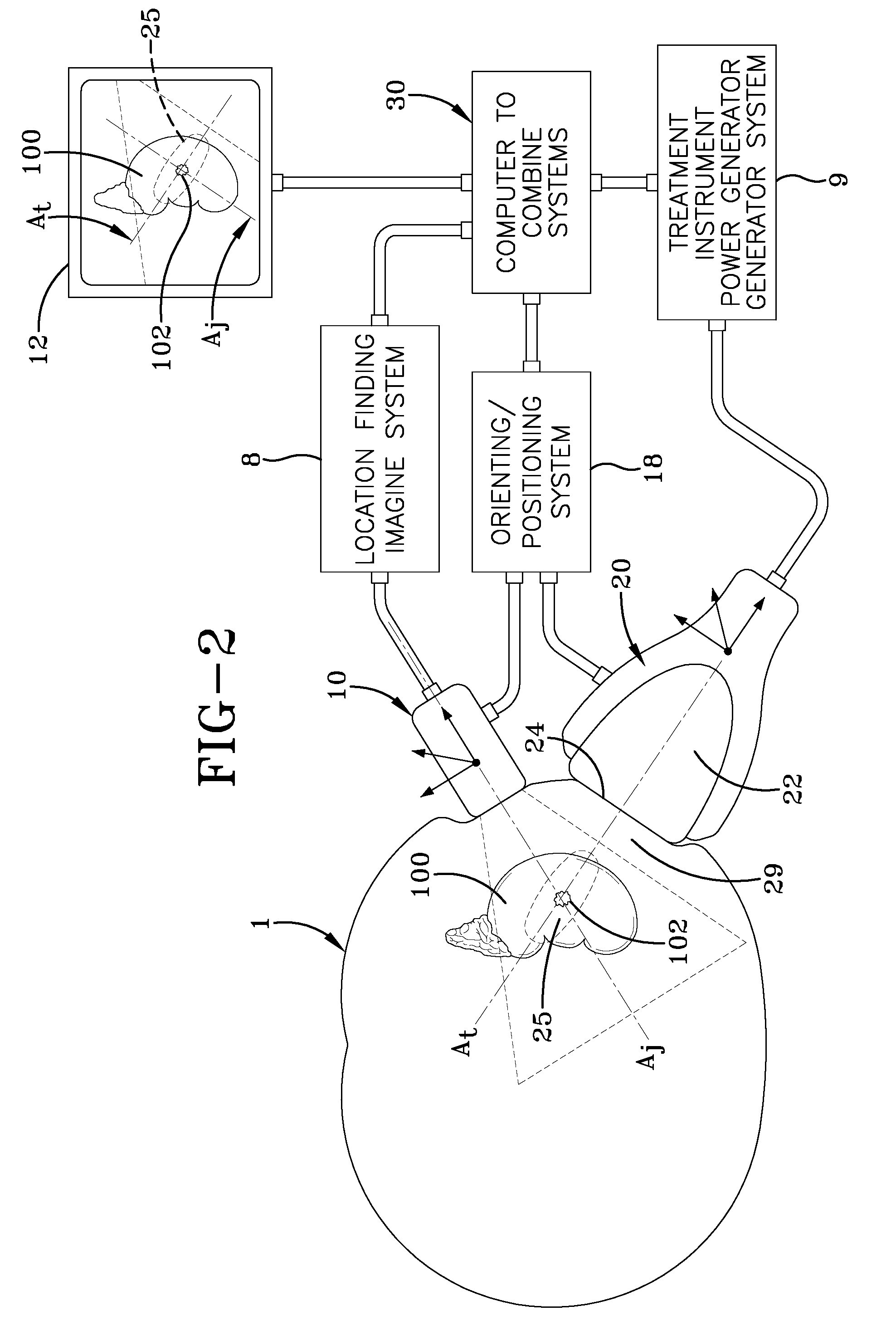Shock Wave Imaging System
a technology of shock wave and imaging system, which is applied in the field of shock wave imaging system, can solve the problems of high threshold energy requirements, high cost of shock wave unit, and inability to maneuver the patient table or shock wave unit,
- Summary
- Abstract
- Description
- Claims
- Application Information
AI Technical Summary
Benefits of technology
Problems solved by technology
Method used
Image
Examples
Embodiment Construction
[0031]With reference to FIG. 1 a patient 1 is shown lying face down on an operating table 40. As shown an exemplary apparatus 2 is positioned to one side of the patient 1 about midway along the torso. An imaging device 10 is shown attached to a portable stand 14 and directed downwardly aiming in a region of the patient's kidney 100. The imaging device 10 has a projected axis or orientation Ai, Ai as illustrated being a vertical line. A treatment device 20 is shown oriented and has a treatment path 25 having a centerline directed along an axis At, as shown At intersects the axis Ai at location 102. Both devices are independently movable in the x,y,z axis either manually or an orienting / positioning system 18 by one or more servomotors 11, 21 such that the image device 10 can be oriented in any desired direction to achieve an optimal view of the treatment volume 100 on an image display monitor 12 while the treatment device 20 can have the path 25 directed in any desired orientation whi...
PUM
 Login to View More
Login to View More Abstract
Description
Claims
Application Information
 Login to View More
Login to View More - R&D
- Intellectual Property
- Life Sciences
- Materials
- Tech Scout
- Unparalleled Data Quality
- Higher Quality Content
- 60% Fewer Hallucinations
Browse by: Latest US Patents, China's latest patents, Technical Efficacy Thesaurus, Application Domain, Technology Topic, Popular Technical Reports.
© 2025 PatSnap. All rights reserved.Legal|Privacy policy|Modern Slavery Act Transparency Statement|Sitemap|About US| Contact US: help@patsnap.com



